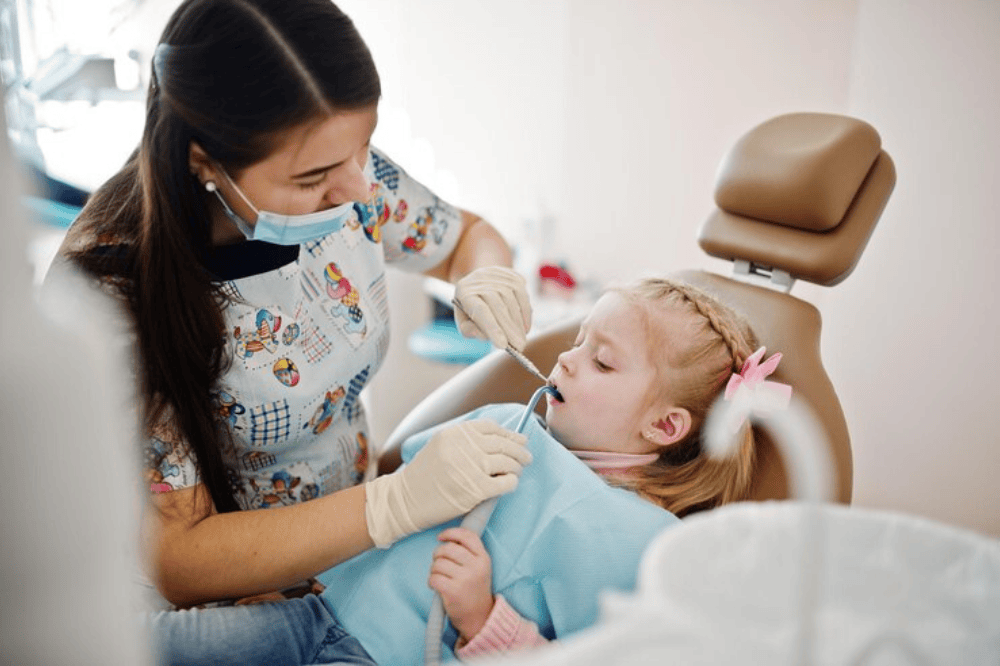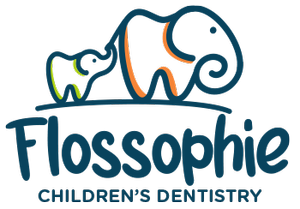
Dental emergencies in infants can be scary for parents, but knowing what to do can help keep the situation under control. Infants are curious and active, and accidents can happen. Whether it’s a knocked-out tooth, a cut in the mouth, or a painful bump to the gums, quick action is important.
Here, we’ll guide you through some common dental emergencies in infants and provide simple steps to take right away to deal with them. If you ever find yourself in such a situation, it’s essential to know an emergency pediatric dentist near you for immediate assistance.
Common Dental Emergencies in Infants
Some of the most familiar dental emergencies that new moms may encounter in their infants include:
- Knocked-out baby tooth (avulsion): A baby’s teeth might also be lost depending on your child’s age if they fall or slip and hit their mouth.
- Chipped or broken tooth: If your infant accidentally chips or breaks a tooth, it can cause pain or bleeding.
- Tooth pushed out of position: A tooth can sometimes be pushed inward or outward due to an injury.
- Cut or bitten lip, tongue, or cheek: Infants might accidentally bite their tongue or cheek, causing a cut or swelling.
- Toothache: Cavities are uncommon in babies, but if the baby has a tooth, they can have a toothache that makes them cry and be uncomfortable.
Immediate Steps for Handling Dental Emergencies
When a dental emergency happens, it’s crucial to stay calm and act fast. Here’s what you can do for each type of emergency. To ensure you have the right emergency care for infants when needed:
a. Knocked-out Baby Tooth
- Do not try to reinsert the tooth: Baby teeth should not be reinserted as it is possible with adult teeth.
- Stop the bleeding: Gently press a clean cloth or gauze to the area to stop the bleeding.
- Call your dentist: Even though it’s a baby tooth, it’s important to inform your dentist. They will check for damage to the surrounding teeth and gums.
b. Chipped or Broken Tooth
- Rinse the mouth: Use warm water to gently clean the area.
- Apply a cold compress: If your child’s mouth is swollen, hold a cold compress (or ice wrapped in cloth) on the cheek.
- Contact your dentist: Call the dentist right away. Bring the broken piece of tooth with you to a dental office if possible.
c. Tooth Pushed Out of Position
- Do not attempt to reposition the tooth: Do not put any pressure on the tooth at all, and ensure you do not touch that area.
- Call the dentist immediately: Your dentist may wish to see the infant as soon as possible to prevent any further deterioration.
d. Cut or Bitten Lip, Tongue, or Cheek
- Clean the area: Use running water to wash the area in a gentle manner.
- Stop the bleeding: If the bleeding continues, press the wound firmly using a clean cloth or gauze until the bleeding is under control.
- Apply a cold compress: If there is swelling, a cold compress can reduce it.
- Call the dentist if the cut is deep: In some cases, deep cuts may need stitches.
e. Toothache
- Rinse the mouth with warm water: This helps to clean the area around the tooth.
- Apply a cold compress: Hold a cold compress to the cheek if the face is swollen.
- See a dentist: It’s important to take your infant to the dentist to find out the cause of the toothache.
Preventing Dental Emergencies in Infants
It is always easier to prevent something than to solve an emergency. Here are some tips to help keep your infant’s teeth and mouth safe:
- Use a soft toothbrush: Clean your infant’s teeth using a soft, baby-sized toothbrush to prevent tooth decay.
- Keep small objects out of reach: Children under the age of three years place objects in their mouths; therefore, they should keep small toys or objects away from kids to avoid choking and dental complications.
- Ensure safe play areas: Establish safe open spaces that children can play in. Falls may be prevented where children play by providing soft mats or carpets on the surface.
- Supervise during meals: Supervise your baby during feeding to avoid biting your fingers or any object or choking on food.
When to Contact a Dentist?
Even minor dental issues can become serious if left untreated. Here’s when you should contact a pediatric dental office near you for professional assistance:
- If your infant’s tooth is knocked out, chipped, or broken.
- If you notice swelling or signs of infection, such as pus or fever.
- If your infant is in pain and it does not go away.
- If your child’s tooth is loose or forced out of position due to an injury
Immediate Help for Your Child’s Smile at Flossophie Children’s Dentistry!
Flossophie Children’s Dentistry is a professional office offering friendly and caring general dentistry to children. We have a friendly team of pediatric dentist in Duluth who are committed to making sessions as comfortable as possible for your child. Schedule a dental appointment today at our office!
